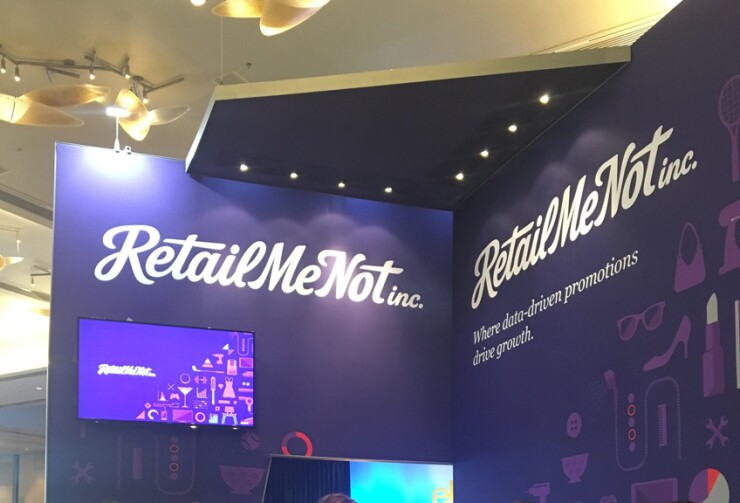Harland Clarke's acquisition of
The impetus for such moves is competition from e-commerce, where heavy hitters like Amazon have streamlined the purchase process to the point where the payment is nearly invisible — and a sharp contrast to the brick-and-mortar world where the EMV migration has drawn out the payment process in the eyes of many shoppers.
But merchants have also been burned in the past by digital payment and loyalty platforms that over-promised their benefits or even clashed with retailers' preferred payment and loyalty platforms. RetailMeNot, a product of the digital world, can address this pain point.

"Harland Clarke is trying to transform from a transaction company to a data company, which is especially important when you consider its roots are in paper checks," said Richard Crone, a payments consultant. "This gives Harland Clarke a rich offer inventory, but that inventory only generates revenue if you can prove a new sale … The real attraction for Harland Clarke and the electronic offers industry in general is the purchase verification."
A company that can demonstrate the link between a coupon, ad or special offer and a sale through a digital trail can command a cut of the purchase that's larger than interchange, he said. "It's about attribution."
Crone predicts other traditional payment companies will buy technology companies to provide marketing and sales analysis. While it's important for retailers to increase foot traffic in their stores, it is more important that the people that come into the stores actually buy something, he said.
Harland Clarke will spend an equity value of $630 million for RetailMeNot, which offers a mobile app that uses geolocation and notifications to tell shoppers they are near a location with a discount offer.
By adding RetailMeNot, Harland Clarke Holdings will substantially increase its digital presence and gain a direct-to-consumer relationship with the RetailMeNot brand, as well as adding access to new channels and products for its clients, said Debbie Serot, senior vice president of corporate communications for Harland Clarke Holdings.
"RetailMeNot's innovative market leading network will be the perfect complement to our omni-channel suite of services," Serot said in an email. "The massive digital audience provided by RetailMeNot will serve to create the premier savings destination for consumers."
Harland Clarke can benefit from the deal in a couple of ways. First, it can respond to the pressure that's on all legacy payment companies, ranging from
It also enables Harland Clarke to fight against the encroachment of competitors that match omnichannel retail marketing to sales, such as
These companies are luring merchants at a time when consumers are warming up to mobile-delivered loyalty and marketing programs. Last month, mobile consultant
And given the decline of
"It is proven that certain merchant types can increase shops and average ticket using incentives," said Tim Sloane, vice president of payments innovation at Mercator, adding CVS and Starbucks are among the retailers that have benefited from this process.
"A critical factor for success is ease of use and high value for the consumer, which includes offers that are relevant," Slone said. "This is not easy for any provider to implement and the more parties that are in the value chain, the harder it is to succeed."





